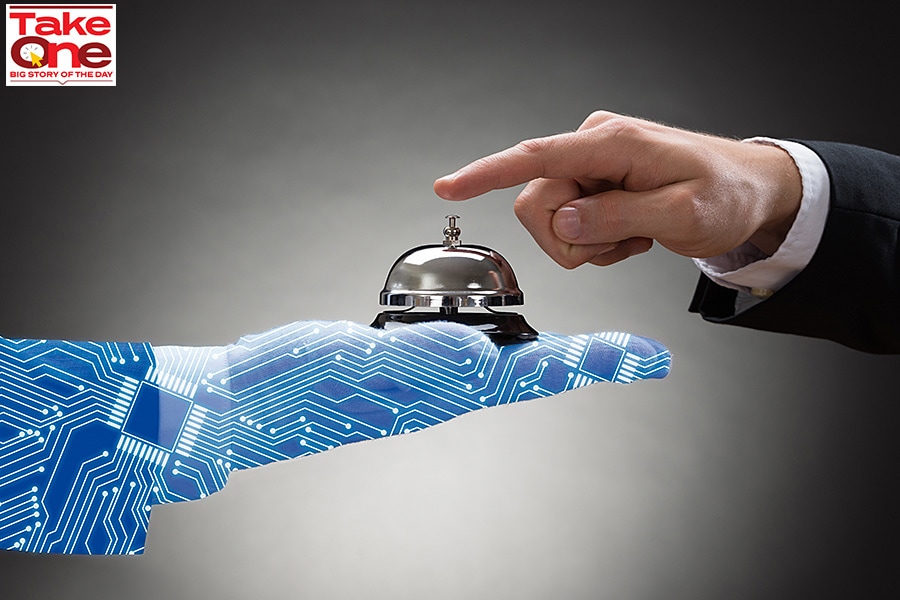
How AI in travel and hospitality is enhancing experiences and optimising operations
From automatically generated itineraries based on the user's mood to voice-assisted booking in Indian languages, here's how AI is set to make travel accessible to all
 From personalised guest interactions and automated travel itineraries, to voice-assisted bookings, AI is transforming the travel and hospitality sector. Image: Shutterstock
From personalised guest interactions and automated travel itineraries, to voice-assisted bookings, AI is transforming the travel and hospitality sector. Image: Shutterstock
Travel bookings have long been pain points among customers, with the process often marred by complexities, overwhelming options, and time-consuming searches. However, with the help of artificial intelligence (AI), online travel aggregators (OTA) are now offering features such as personalised and automatically generated itineraries and voice-assisted bookings to transform the process into a more streamlined and user-centric experience.
Take these innovations, for example.
In July 2023, OTA Ixigo introduced ‘Plan by Ixigo’, a trip planner built on OpenAI. With this, the platform can process and understand users’ preferences, and offer them personalised recommendations, suggestions, and itineraries. Alternatively, if users have a destination in mind they will be able to select from a range of trip themes or provide their preferences for a customised trip plan. 'Plan' will automatically tag, map and generate a detailed itinerary for the chosen destination and chosen theme, additionally integrating weather and air quality index updates.
“Since the launch, we have generated 30,000 new itineraries,” says Rajnish Kumar, co-founder and group CPTO. “Our objective was to make travel accessible to all. We’ve ensured that the recommendations are accurate and factually correct.”
Soon, Ixigo plans to introduce features to enable users to collaborate with friends and family for an interactive trip-planning experience.








